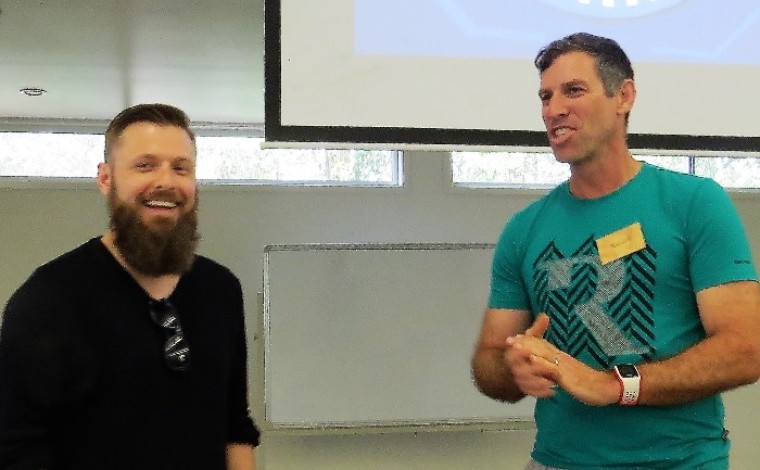

For a few years now I've been involved in a high school holiday camp around the Sydney area called Crütech. Throughout a week of Crütech we focus on God's word and technology.
One of the activities we do throughout the week is play video games together. We focus on playing games that encourage strategy and teamwork. Campers play games such as StarCraft by Blizzard Entertainment against each other and sometimes the leaders.
By playing games like this we've found that the campers are encouraged to cooperate with each other, but more importantly it creates a shared experience. This shared experience is self-evident as you hear campers retelling events from that day or recapping the events of games of previous camps. These stories have helped provide a common history which provides a great foundation for a sense of belonging to the wider community of the camp.
While all in all campers spend between 6 to 10 hours throughout the entire week playing video games (we have a lot of other activities!) it is a key place where many campers can start friendships and as such I think it is worth considering as a fun way to build fellowship.
The humble LAN
The concept of a LAN party is relatively simple; a Local Area Network (LAN) of two or more computers is used for playing games. I use the term computer here to cover the variety of devices spanning phones, to desktops, laptops and consoles, all of which can be used for games and can connect to other devices.
The "topology" of a LAN party network is cables strewn across a lounge room floor. Although wireless is very common now and with a little care cables can be kept neat and ordered.
Following a LAN players often retell the stories of the events that took place in the worlds of the games they played. Joining together in a fun pursuit gives the participants a shared experience, something they have in common. These joint experiences can form bonds of friendship and a sense of belonging, an important aspect of fellowship.
Games are accessible
Games in a virtual realm can be an excellent platform for multiple people to interact in play together. While there are variations in mechanics (asymmetric or symmetric play and elements of chance verses determinant rules are some examples) the interface with which players perceive the world is, in an ideal, consistent between players.
This strives towards laying out a level playing field but furthermore such interfaces are designed to be accessible and as such aim towards being inclusive. Clearly being inclusive is a must if players are to share in an experience.
Games can be expensive!
While not all games are sold for money, it currently is still the majority business model. Ensuring that the game is legally owned by all players may seem like a chore but it is an ethical responsibility which goes with the organisation of a LAN, in my point of view.
You'll need some time
To do justice to the experience you'll need some time. The setup can be quite involved depending on what goes wrong (it is a common consensus that it isn't an authentic LAN party without something going wrong) and then you'll need some time to play. The amount of setup time will vary depending on how many devices you're connecting, it can easily take hours to have everyone properly setup and configured.
Our solution to time and content
We side step as many of these issues as possible by providing and setting up computers for all of Crütech (we use them for some of our teaching components too) and we then also manage all of our licenses and have strong control over what games are played.
The task is quite achievable at a smaller scale though and may be a great chance to give some senior youth members an opportunity to take on some leadership roles in setting up the LAN party.

There are many other ways to encourage teamwork and cooperation in a group and much depends on leveraging common interests as much as possible, but I hope this can be an encouragement to try out a LAN party as way of building shared stories and belonging.
Sam Gillespie is a postgraduate research student at the University of New South Wales.
Sam Gillespie's previous articles may be viewed at www.pressserviceinternational.org/sam-gillespie.html